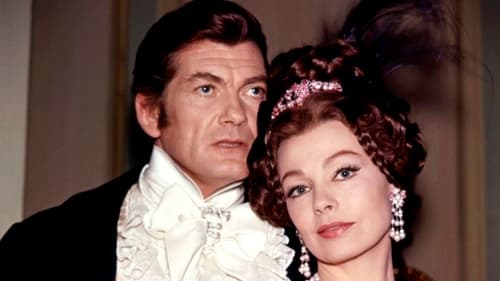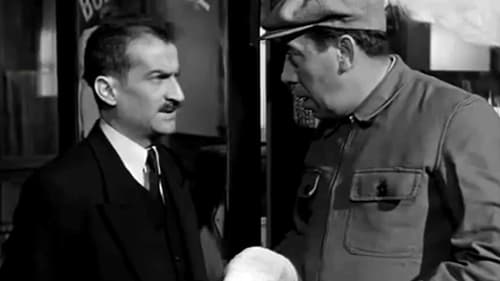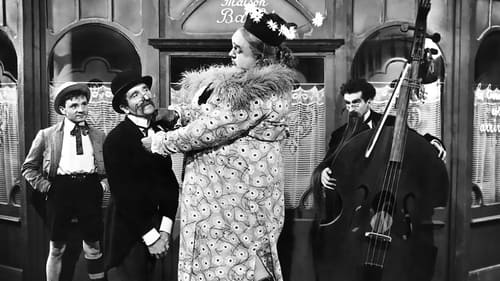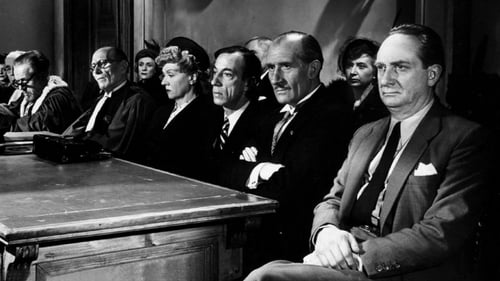Renée Gardès
Nascimento : 1887-01-12, Paris, France
Morte : 1972-01-06

La vieille pocharde
A portrait of loneliness in contemporary France.

Old Woman
French experimental film by Alain Fleischer.

Jean-Joachim Goriot, a merchant who got rich during the Revolution, is obsessed with the love of his two daughters, whose social promotion he wants. He endows them richly, ruins himself to pay their debts, but Delphine and Anastasie do not return his affection and abandon him at the time of his death to run to a big ball.

Victoire
After five years in the army, Valentin Brû marry a haberdasher. They move to Paris, where Valentin sells frames, while his wife becomes fortune teller. One day, Valentin replaces her, and predict a terrible event which will happen.

Pension Landlady (uncredited)
Hakim Gregory escapes from prison by killing a number of guards, and returns to his hide-out abroad, to lead again his gang of drug trafficking and contract murders. Layton of the Secret Service must discover, and arrest him. The difficult mission almost becomes impossible with the rivalry of Layton's partner, Petula, the jealousy of his bride, Marion, the possible treachery of a Spanish woman, Dolores Arrabal, and yet a mysterious and sexy informant, Rosario... Too many women for Layton.

La Chouette
The Marquis Rodolphe de Sombrueil accidentally runs over a working man with his carriage and helps his widow -- unjustly accused of robbery -- to find her missing daughter.

La grand-mère
Eloi is a twenty-year-old secondhand goods dealer who does his job without particular enthusiasm. He has a girlfriend, Nénette, but immature as he is, he feels just as happy in the company of Fortunée, his young sister, whose little girl's games he shares as often as he can. The three of them live with Eloi and Fortunée's grandmother, nicknamed by all the "Queen of the Flea Market". In possession of a mirror of Venice, Eloi decides to present it to Dormoy, an antique dealer who keeps up shop in the fashionable districts of Paris. On that occasion Eloi meets and falls in love at first sight with Dormoy's rich mistress. The latter, half-moved, half-consenting, does not discourage him.

Dany Robin plays the title character in the French comedy Mimi Pinson. The plot is strictly formula stuff, with Mimi being thwarted on all sides by those who have designs on her money and her virtue. Happily, our heroine triumphs over her foes and predators, finding true romance in the arms of Raymond Pellegrin.

Juliette (uncredited)
Une Parisienne é um filme de comédia francês de 1957 dirigido por Michel Boisrond e estrelado por Brigitte Bardot.

In a port area of France, clashes between a gang of young delinquents and a tribe of gypsies.

Une concierge
A publicity-minded French mayor reunites quintuplets and their earthy father, all six played by Fernandel.

La mère Le Guen
Originally titled Nous Sommes Tout des Assassins, We Are All Murderers was directed by Andre Cayette, a former lawyer who detested France's execution system. Charles Spaak's screenplay makes no attempt to launder the four principal characters (Marcel Mouloudji, Raymond Pellegrin, Antoinine Balpetre, Julien Verdeir): never mind the motivations, these are all hardened murderers. Still, the film condemns the sadistic ritual through which these four men are brought to the guillotine. In France, the policy is to never tell the condemned man when the execution will occur--and then to show up without warning and drag the victim kicking and screaming to his doom, without any opportunity to make peace with himself or his Maker. By the end of this harrowing film, the audience feels as dehumanized as the four "protagonists." We Are All Murderers was roundly roasted by the French law enforcement establishment, but it won a special jury prize at the 1952 Cannes Film Festival.

(uncredited)
The eccentric characters of a street from the comic designs of Andre Dubout are brought to life with human performers instead of drawings.

(uncredited)
Uma médica é acusada do assassinato de seu marido por eutanásia.

(uncredited)
A great disappointed love once encouraged the vocation of Sister Claire, who, however, forgot nothing. She follows in their daily life three young girls beloved and badly brought up by a widower, an artist with measured comicality. Sister Claire will save one of the sisters abandoned by her seducer.

Véra, a vivacious woman, and her alleged brother Boris, are both hired by the Dubelairs as their chambermaid and caretaker. But Dubelair has done bad business while his wife Juliette plays at the races and... loses ! So when it comes to paying their domestics wages, Dubelair gives them lottery tickets. Chance has it that one of them is winning...!

(uncredited)
What was it about opera diva Grace Moore that attracted the attention of filmdom's top directors? Moore's 1937 American movie vehicle When You're in Love had been directed by Josef Von Sternberg; two years later, her French starrer Louise was helmed by no less than Abel Gance, who a decade earlier had revolutionized the "historical epic" genre with the awesome Napoleon. There was, however, little that was revolutionary in this cinemadaption of Gustave Charpentier's opera. Moore plays Louise, a poor seamstress who is led astray by the rakish Julien (Georges Thill). After falling from grace (no pun intended), our heroine is rescued by her understanding father (Andre Pernet), who demonstrates his forgiveness by singing to her (it is, after all, an opera). Though it played to enthusiastic crowds in both London and Paris, Louise turned out to be Grace Moore's final film; conversely, Abel Gance continued to make commercial potboilers well into the 1970s.

Une Tricoteuse (uncredited)
Um professor parisiense conta a história da famosa avenida de Paris, a Champs-Élysées, desde o seu início em 1617 como estrada cortando a mata traçada por Marie de Médicis até os tempos atuais, passando pelo seu período esplendor burguês sob Napoleão III.












